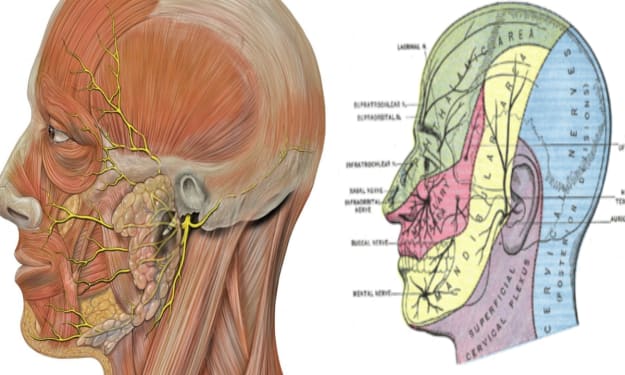
10 Tips for Success on the Keto Diet: Fueling Your Body with Fat
Are you tired of yo-yo dieting and feeling like you're always hungry? The keto diet may be just what you need to transform your body and mind. By switching to a high-fat, low-carb diet, you can unlock your body's full potential and achieve sustainable weight loss, improved energy levels, and mental clarity. Unlike traditional diets that leave you feeling deprived and constantly hungry, the keto diet allows you to indulge in delicious, healthy fats that will keep you satisfied and energized. In this article, we'll explore the science behind the keto diet and provide you with all the information you need to get started on your journey to optimal health and wellness.
1) Get rid of all the carbs in your house
The ketogenic diet is low-carb, high-fat. That means that all the carbs need to go! This includes pasta, rice, bread, cereal, sugary snacks, and starchy veggies like potatoes and sweet potatoes. You'll also want to avoid artificial sweeteners, which can spike insulin levels and throw you out of ketosis. When you're stocking your kitchen for the keto diet, focus on eating whole foods like nuts, seeds, vegetables, healthy fats, and proteins. This will help you to stay in a state of ketosis and burn fat more efficiently. If you're having a tough time letting go of those carbs, remember this: when you replace those carbs with healthy fats like olive oil, avocado, and nuts, you'll be able to experience satiety without the cravings.
2) Make sure you're getting enough fat
If you want to reap all the benefits of the keto diet, you need to make sure you're consuming enough healthy fats. Healthy fats are essential for helping to regulate your hormones and provide energy. When it comes to healthy fats, think quality over quantity. Unsaturated fats, such as those found in avocados, nuts, seeds, and olive oil are all excellent sources of dietary fat. Additionally, look for sources of omega-3 fatty acids, like fish and flaxseeds, which are linked to many health benefits including improved brain function. When you're planning your meals, aim for about 60-80 percent of your total calories from healthy fats. This doesn't mean you should only eat fatty foods; incorporate some carbs and protein as well, but just make sure that the majority of what you're eating is fat.
In addition to eating more healthy fats, also consider adding a supplement like MCT oil to your daily routine. MCT (medium chain triglyceride) oil is a great source of healthy fats and can help boost your metabolism and support ketosis.
3) Eat moderate amounts of protein
When it comes to eating protein on a ketogenic diet, moderation is key. Protein should comprise about 15-25% of your daily calorie intake. While this may seem like a small amount, you can still get enough of the essential amino acids your body needs from plant and animal sources. Consume a variety of protein sources such as eggs, fish, poultry, beef, pork, beans, nuts, and dairy products. To make sure you're getting enough protein, try tracking your food intake using an app or online service. This will help you stay within the recommended range for your particular caloric needs.
4) Don't be afraid of salt
Salt can be a controversial topic, especially when it comes to weight loss. But the truth is that salt is an important part of a healthy diet, and it can actually help you reach your weight loss goals. First of all, salt helps you retain water, which can keep you feeling fuller longer. This can help you avoid overeating and cravings for unhealthy snacks. It also helps regulate fluid levels in your body, which can prevent dehydration and fatigue. Salt also helps your body absorb minerals like potassium, magnesium, and calcium more effectively. These minerals are essential for keeping your metabolism running smoothly and helping your body break down food more efficiently. Finally, salt can help you stick to your keto diet. Low-sodium diets can cause cravings for salty foods, which can lead to eating unhealthy snacks or processed foods that don't fit into your diet. But by using salt in moderation, you can satisfy your cravings without sabotaging your progress. So don't be afraid to use salt on your keto diet. Just remember to use it in moderation and make sure you're getting enough other essential minerals and vitamins as well.
5) Drink lots of water
Drinking enough water is important for any healthy diet, and it's especially important on the keto diet. It helps keep your body functioning properly by helping to flush out toxins, aiding in digestion, and preventing dehydration. Aim to drink at least two liters (about eight glasses) of water a day while following the keto diet. There are many benefits to drinking more water on the keto diet. First, it helps you feel full and satiated, so you won't be as tempted to reach for unhealthy snacks. Second, it helps your body absorb essential nutrients and electrolytes more efficiently, ensuring that your cells get the nutrition they need. Finally, staying hydrated helps to boost your metabolism and support healthy weight loss. When you're drinking more water, make sure you're also avoiding beverages with added sugar or artificial sweeteners. Stick to plain water or water flavored with fresh lemon or lime juice. Adding cucumber slices or berries can also help make drinking more water fun and tasty. If plain water doesn't appeal to you, try herbal teas, unsweetened sparkling water, or cold-pressed vegetable juices.
6) Avoid processed foods
Processed foods are a major no-no when it comes to the keto diet. This is because they tend to be high in carbohydrates, and low in the healthy fats and proteins that you need to stay in ketosis. Processed foods are also typically very low in nutrients and fiber, which can lead to deficiencies. When shopping for food on the keto diet, always read labels carefully to make sure you’re avoiding processed foods. Whenever possible, opt for fresh, unprocessed ingredients such as fruits, vegetables, nuts, seeds, and lean proteins. Also, limit your consumption of condiments and sauces, as these can often contain added sugar and carbs.
It’s also important to watch out for sneaky added sugars and carbs that are found in seemingly “healthy” processed foods like protein bars, granola bars, smoothies, and pre-packaged salads. All of these items can be high in sugar and carbs without you even realizing it.
The best way to ensure that you’re eating whole, unprocessed foods is to prepare meals yourself using simple, natural ingredients. This way, you know exactly what’s going into your meals and can better control your carb and sugar intake.
7) Get enough sleep
Getting enough sleep is an essential part of any diet. Not only does it give your body time to rest and recover, but it also helps regulate metabolism and hormone levels. When you’re on the keto diet, getting enough sleep is especially important. Lack of sleep can lead to lower energy levels, impaired brain function, and can even slow down weight loss.
It’s recommended to aim for 7-8 hours of quality sleep each night. Avoid drinking caffeine late in the day and find ways to wind down before bedtime such as taking a hot bath, reading a book, or meditating. Also consider keeping your bedroom dark, quiet, and cool – all of which can help you get more restful sleep. Taking steps to make sure you get enough sleep can help you get the most out of your keto diet and reach your weight loss goals faster.
8) Exercise
Physical activity is an important part of a healthy lifestyle and the ketogenic diet is no different. When on the keto diet, exercise can help you reach your goals faster by increasing your metabolism and helping to burn more calories. This can also help with managing blood sugar levels, as well as stress and anxiety levels. The type of exercise that you should do depends on your individual goals and preferences. If you’re looking to lose weight, HIIT (high-intensity interval training) and strength training may be the most effective. If you’re looking to maintain or improve cardiovascular health, then low-intensity aerobic exercise such as walking or biking may be more appropriate. When it comes to exercise, consistency is key. You don’t have to work out for hours every day, but even doing something for 30 minutes a day can make a difference. Try to find something that you enjoy and stick with it. For example, if you like running, set a goal of running two miles a day and try to achieve that. If you don’t like running, try yoga or swimming. Find something that works for you and do it regularly. Exercise can be a great way to boost your energy levels, manage stress, and maintain your weight while on the ketogenic diet. Just make sure that you’re getting enough rest and not overdoing it. Finding the right balance between exercise and rest can help you reach your goals faster and stay healthy.
9) Manage stress
Stress can play a major role in weight loss, both positively and negatively. Research shows that chronic stress can lead to overeating and weight gain, as well as interfere with your ability to stick to a healthy diet. It’s important to find ways to manage your stress levels if you’re following a keto diet. There are several things you can do to help you manage your stress. First, get organized. Make a list of tasks you need to complete each day and set aside dedicated time to accomplish them. This will help you stay on top of your schedule and reduce the amount of stress in your life. Second, make sure to take breaks throughout the day. Take a few minutes away from the chaos to relax and focus on something positive. This could mean taking a walk, reading a book, or even meditating. Finally, try to maintain a positive attitude. Remind yourself of the progress you’ve made so far and that you’re doing something positive for yourself by following the keto diet. A positive outlook can do wonders for reducing stress levels.
By following these tips, you can better manage your stress and get the most out of the keto diet. With a little bit of effort, you can enjoy all the health benefits of this amazing diet!
10) Check in with your doctor
It's important to remember that the keto diet can be an effective tool for weight loss, but it's not suitable for everyone. Before embarking on any kind of health and diet plan, it's always best to check in with your doctor to make sure it is safe for you to do so. Your doctor will be able to advise you on the best way to go about a keto diet, as well as monitor any changes in your health. Your doctor may ask you to go for certain tests and checkups to assess your current health and fitness levels. They may also recommend other options if they feel that the keto diet is not right for you. Even if the keto diet is right for you, your doctor will still be able to provide invaluable advice and guidance on how to do it safely and effectively.
It is also a good idea to keep up regular communication with your doctor throughout your journey on the keto diet. This way, you can make sure that everything is going according to plan and get help if you need it.
If you want to control your health and transform your body with these proven tips for success on the keto diet - click here now






Comments
There are no comments for this story
Be the first to respond and start the conversation.